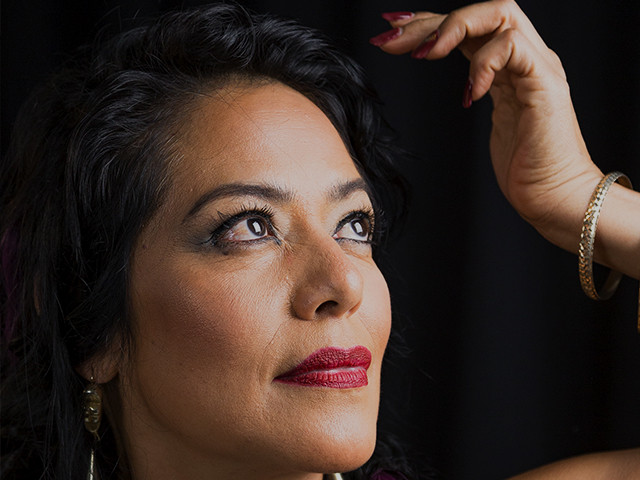Mexican-American singer Lila Downs marries many vintage sounds of Mexican culture to a modern, feminist sensibility. On her latest album, “Salón, Lágrimas y Deseo” (meaning a “Dance Hall, Tears and Desire”), the Grammy Award winner showcases her luxurious voice with lyrics celebrating women’s power, infused with a romanticism that links her very 21st-century sound with Mexico’s rich musical history. On a recent “Salon Talks” episode, she described influences on her music and its impact.
How did Donald Trump’s election affect the making of this new album?
We all have a reaction to life, to the events, to our culture, to what’s happening in our nation. . . . For me, it’s Mexico is principally my nation but the U.S. is as well. So it’s really disheartening to see. I think it’s mainly about a broken heart.
[In dealing with heartbreak] drink and dance are really an expression of our existence, and it’s about catharsis. In this case, it really is a catharsis. But then it’s about not giving up. It’s about showing and rising to the occasion, rising, that love can do more than hate.
What’s going on with the rise of hate and anger in recent years?
[Hate is] kind of like a wild horse. Hate — if you really hate someone or you hate people; you hate divisions; you hate racism — it can be a very easy place to go to. I think that’s what’s happening is that a lot of people in this country are going in that direction. . . . It can be more of a challenge and to me it’s more interesting to tame the beast, to put some reins on it and to manage it [and] carry the cause, and you make it music and you make it dance.
Why write a song “Peligrosa,” about dangerous women?
The lyric says, “They say, people say in my society that I’m dangerous.” . . . It’s about how perception can be so different, depending on where you come from and who you are. I know the lyric has provoked some people especially in Mexico — a couple of guys came up to me and were like, “Oh so are you a feminist?”
And I said, “Well, you know, if I weren’t, I could not stand here and talk to you because I would’ve had to get permission from a husband. And I probably couldn’t be wearing what I’m wearing what I’m wearing either. So I guess I am a feminist.”
Watch more of our conversation about Mexican music, feminism and politics on Salon.


